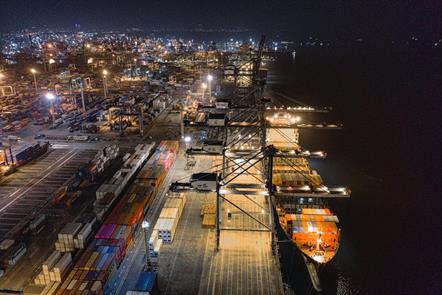African Continental Free Trade Area: A new hope for continental integration
On 21 March 2018, the Agreement Establishing the African Continental Free Trade Area (the “Agreement”) was signed by 44 of the 55 member States of the African Union (the “AU”) at its 10th Extraordinary Summit, thereby creating a pan-African trade bloc. After ratification by 22 countries, the Agreement entered into force on 30 May 2019. As of the time of publication of this newsletter, 54 States had signed the Agreement and 36 of them had deposited their instruments of ratification. In line with a Decision and Declaration adopted by the AU on 5 December 2020, the trade in goods under the Agreement commenced on 1 January 2021.
The formation of the African Continental Free Trade Area (the “AfCFTA”) is a monumental step in the economic integration of Africa as it aims to unite 1.3 billion people across 55 countries with a combined GDP valued at US$3.4 trillion. According to the World Bank, the Agreement has the potential to lift 30 million people out of extreme poverty by 2035.
Background
The idea of continental integration to improve Africa’s economic performance began soon after the independence of African States in the late 1950s and was evidenced by the formation of the Organisation of African Unity (the “OAU”) in 1963. The main objectives of the OAU were to promote unity and solidarity amongst African States and to intensify their cooperation to achieve a better life for the people of Africa.
The journey towards integration thereafter included the Monrovia Declaration of 1979, followed by the Lagos Plan of Action in 1980, and the Abuja Treaty in 1991 which set out a roadmap to create an African Economic Community (the “ACM”) by 2028 using the Regional Economic Communities (the “RECs”) as building blocks.
In 2002, the OAU was replaced by the AU with a vision to “accelerate the political and socio‑economic integration of the continent”. However, even after two decades of the creation of RECs, intra-Africa trade remained markedly low. Statistics by International Monetary Fund show that in 2017, intraregional trade in Africa was only around 17% of its total trade compared to the intraregional trade levels of over 50% in Asia and Europe. It was against this backdrop that the AU at its 2012 summit decided to fast track the formation of an intra-continental free trade area by 2017.
The negotiations for AfCFTA began in 2015 and in the same year, the AU adopted Agenda 2063, a continental 50-year agenda for Africa’s long term socio-economic and integrative transformation. AfCFTA has since been transformed from a mere vision to an executed agreement amongst 54 African States in less than 6 years, thus consolidating the dream of an integrated Africa “driven by its own citizens and representing a dynamic force in the international arena”.
Overview of the Agreement
The Agreement establishes a framework for implementation and administration of the AfCFTA and the related protocols. The protocols are negotiated in phases. Phase I of the negotiations resulted in the protocols relating to trade in goods, trade in services, and dispute settlement. Phase II negotiations will cover investment, competition, and intellectual property rights, whereas Phase III will focus on e-commerce. The negotiations are set to conclude by 31 December 2021 and the outcome thereof will be constituted as protocols on the relevant topics.
The institutional framework for AfCFTA comprises of: (i) the Assembly of Heads of State and Government of AU for providing oversight and strategic guidance, (ii) a Council of Ministers for ensuring implementation of the Agreement, (iii) a Committee of Senior Trade Officials to implement the decisions of the Council of Ministers, and (iv) the Secretariat. Such a comprehensive institutional framework aims to serve as the foundation for the proper administration and facilitation of AfCFTA.
The Agreement reinforces that State Parties that are members of other RECs and have attained higher levels of regional integration shall be entitled to maintain such relationships. Thus, AfCFTA is intended to function along with the RECs by treating them as building blocks for economic integration. By reinforcing the principles of non-discrimination and market access, AfCFTA aims to extend similar protection to those States which are not members of the World Trade Organisation (“WTO”).
The Agreement also prioritises sustainable and inclusive socio-economic development, gender equality, food security and structural transformation of the State Parties. This is line with Agenda 2063 and provides the connecting link for economic growth with sustainable development.
Another significant feature of the Agreement is the provision for review every 5 years to ensure effectiveness and achieve deeper integration. This would provide AfCFTA with the flexibility to adapt to evolving regional and international developments and respond to new challenges.
Dispute resolution mechanism
The Agreement establishes a Dispute Settlement Mechanism (“DSM”) to be administered in accordance with the Protocol on Rules and Procedures on the Settlement of Disputes (the “Protocol”) and which is largely modelled on the Dispute Settlement Understanding of the WTO. Provisions of the Protocol apply only to disputes arising between States in relation to their rights and obligations under the Agreement and to that end, the Protocol creates a Dispute Settlement Body (the “DSB”). The DSB in turn has the authority to establish Dispute Settlement Panels (a “Panel”) and an Appellate Body, to adopt their reports, survey the implementation of their rulings, and to authorise the suspension of concessions and other obligations under the Agreement.
The Protocol provides for consultations as the first step towards dispute resolution. State Parties to a dispute also have the flexibility to voluntarily undertake good offices, conciliation or mediation at any time, in a confidential manner and without prejudice to their rights in other proceedings. This encourages States to explore ways to amicably resolve their disputes before invoking the formal DSM procedure. In the alternative, States may also invoke arbitration as the first avenue for dispute settlement, in which case they are not permitted to simultaneously refer the dispute to the DSB.
Where consultations are unsuccessful, the matter may be referred to the DSB seeking establishment of a Panel to set in motion the process for formal resolution of the dispute. A third-party State with substantial interest in the dispute can also participate in the proceedings. The report containing the majority view of the Panel is brought for consideration before the DSB. DSB then considers the report and decides whether to adopt it or not. A party to the dispute may also notify the DSB of its intention to appeal the report to the Appellate Body. However, appeals are only limited to issues of law and legal interpretations of the Panel.
As a remedial measure, a State that is found to have violated the Agreement is required to bring its measures in conformity with the AfCFTA. The aggrieved party is entitled to compensation and suspension of concessions and other obligations as temporary measures if the ruling of DSB is not implemented within a reasonable period of time.
The future of Investor-State Dispute Settlement (“ISDS”) under the Agreement is presently unclear. Only when the Phase II negotiations are complete will we know whether the investment Protocol provides for an ISDS mechanism. However, it is worth noting that the recent trend of African States has been to exclude investor-State arbitrations or impose restrictions on them in the regional agreements and Bilateral Investment Treaties (“BITs”). This could potentially be reflected in the approach adopted by AU towards settling investment claims.
Potential impact of AfCFTA
AfCFTA indicates a new era in the vision for integration of the African markets. The Agreement is expected to create a single liberalised market for trade in both goods and services. This would result in enhanced economic cooperation and intra-regional trade amongst African countries, thereby creating more jobs, stimulating investment, and improving competitiveness in the continent.
Starting from 1 January 2021, tariffs on 90% of the goods traded between AfCFTA State Parties are to be reduced in annual instalments until they are eliminated within 5 years (10 years for least developed countries). Similarly, the Agreement also provides for elimination of non-tariff barriers and cooperation on implementation of trade facilitation measures. As per the World Bank, proper execution of the Agreement could boost Africa’s income by US$450 billion, lower gender wage gap, raise the income of 68 million people wo live in moderate poverty and increase Africa’s export by $560 billion by 2035.
The AfCFTA could also prove to be crucial in a world plagued by the COVID-19 pandemic. Like most regions around the world, the pandemic has taken a heavy toll on African economies by pushing the region to its first recession in 25 years. Trade in critical supplies such as food and medical supplies has also been affected. With its plans of regional integration and streamlining of border procedures, AfCFTA could be Africa’s economic recovery plan to achieve accelerated economic progress and boost mutual self-sufficiency through long-term reforms.
As trading under AfCFTA commences in January 2021, the President of South Africa and Chairperson of the AU, Cyril Ramaphosa, is hopeful that “it will unleash regional value chains that will facilitate Africa’s meaningful integration into the global economy and improve the prospects of Africa as an attractive investment destination.”
Conclusion
The AfCFTA is the dawn of a new era of intra-regional trade that aims to benefit all member States through expansion of the market and by overturning outdated trade models. However, implementation of the Agreement could prove to be an uphill task and will require the determined effort of all participating States. This in turn calls for appropriate legislations and policies that provide reliable and transparent rules for proper functioning of the market. But, if successfully implemented, the AfCFTA could be instrumental in propelling Africa forward as a leader on international trade platforms.
Biden administration puts global warming at center of agenda as nations prepare for COP26
On February 19, 2021 the Munich Security Conference (“MSC”), world’s leading forum for debating international security policy, organized a special edition event assembling world decision-makers such as Joe Biden, Angela Merkel, Emmanuel Macron and Boris Johnson to discuss transatlantic cooperation.
Traditionally held in February, the MSC had to postpone its yearly held conference due to the ongoing pandemic. The special edition aimed at providing senior leaders with a globally visible platform to discuss how to “rebuild and renew the transatlantic and international cooperation” and “continue vital debates” at the very time and place the MSC 2021 would have normally kicked-off.
Divided in four sections, the event dedicated a spotlight to tackling the Climate crisis in which John Kerry, climate envoy to the United States, warned that the world’s “best” and “last” hope to get back on track to limit global warming to 1.5C is the upcoming November United Nations climate summit to take place in Glasgow (“COP26”).
The climate envoy asked leaders to put in place policies aimed at “averting the worst consequences of global warming” asserting that “there is no faking it in this moment” and affirming that none of the world’s major signatories to the Paris climate agreement had been doing enough.
In its December 2020 Emissions Gap Report, the United Nations Environment Program concluded that Since December 12, 2015, global greenhouse gas emissions had continued to climb by 1.3% per year on average. 2019 breaking records with 52.4 billion tons of CO2 emitted by human activity, almost 60 billion tons if the emissions due to the cultivation of land formerly in natural areas are included.
President Biden’s Administration on Climate Change
John Kerry’s announcement tallies with the United States’ formal re-entry to the Paris Accord on February 20, 2020 and follow through on President Biden’s promise to take “aggressive action to tackle climate change”.
United states had officially withdrawn from the accord in 2019 after former President Donald Trump had begun the process in 2017. This withdrawal from the agreement by the United states, world’s second-largest emitter of CO2 according to the World Bank, had been received negatively by Governments around the world.
Hours after being sworn in, President Biden moved to reinstate the United States to the Paris agreement, signing two executive orders and a Memorandum addressing climate change policy and scientific integrity on January 27, 2021 (“Climate Day”). The two Executive Orders and Memorandum included a moratorium on new oil and gas lease permits on federal lands and waters and announced an intent to join domestic action with international action so as to increase global action on climate change.
The Orders reaffirm the United States’ attentiveness to address climate change “both bilaterally and unilaterally” and addresses climate change measures at the domestic level. The Government expects to but in place both a “government-wide approach” and a strategy centralized with the White House Office of Domestic Climate Policy, tasked with overseeing all “domestic climate-policy decisions and programs”.
The future?
With the United states return to the Paris accord, Washington will release a new emissions cut pledge ahead of the November COP26 convened by Biden with other major emitting countries. This new goal should be “at least” a 50% reduction in greenhouse gases by 2030, from 2005 levels according to Laurence Tubiana, France’s climate change ambassador and key architect of the Paris agreement. In comparison, the Obama administration had aimed at cutting emissions by at least 26% by 2023 relative to the 2005 levels.
UK Supreme Court issues new decision on parent company liability in Okpabi and others v. Royal Dutch Shell Plc and another
Significant developments continue in the field of human rights and environmental litigation in the UK. On 12 February 2021, the Supreme Court issued its unanimous judgment in Okpabi and others v. Royal Dutch Shell Plc and another [2021] UKSC 3, declaring that a claim brought by over 40,000 residents of two communities in the Niger Delta against two Shell group companies over alleged oil spills could proceed to the merits stage.
The case concerns claims against the UK parent of the Shell group, Royal Dutch Shell Plc (“RDS”) and its Nigerian subsidiary, the Shell Petroleum Development Company of Nigeria Ltd (“SPDC”). The claimants sought compensation for oil spills that allegedly occurred from oil pipelines and associated infrastructure operated by SPDC in the vicinity of their communities.
In a high-profile decision, the Supreme Court reversed the Court of Appeal’s judgment and accepted that English courts had jurisdiction over the case, as the claim was arguable enough to proceed to a full trial. The Supreme Court held that the majority of the Court of Appeal had erred in conducting a “mini-trial”, as this was inappropriate at the interlocutory stage. Instead, the Court of Appeal should have accepted assertions made by the claimants as arguable, unless they were demonstrably untrue or unsupportable.
The Supreme Court also examined and applied principles concerning parent liability as set out by its previous judgment in Lungowe v. Vedanta Resources Plc [2019] UKSC 20. It found that the Court of Appeal had been wrong to state that the promulgation of group-wide policies could never give rise to a duty of care. In addition, the Court of Appeal had focused inappropriately on the issue of control to determine liability of the parent company. Instead, the relevant question was the extent to which a parent company was involved in the de facto management of the material activity. Finally, following its reasoning in Vedanta, the Supreme Court found that liability of a parent company in relation to the activities of its subsidiaries was not a distinct category of common law negligence and that the Court of Appeal had been wrong to consider the parent company’s duty of care by reference to the threefold test in Caparo Industries plc v. Dickman [1990] 2 AC 605.
The Okpabi decision, together with the judgment in Vedanta, provides guidance on the circumstances in which a parent company may be held liable for acts or omissions of its foreign subsidiary. The judgment highlights again that multinational companies need to assess the human rights and environmental risks associated with their subsidiaries’ overseas operations carefully. It is probably no longer premature to say that, given the Business and Human Rights issues being decided in the English and a number of other courts, it will be increasingly considered reckless and not diligent behaviour for enterprises with overseas operations to ignore these developments and not seek advice from suitably experienced lawyers as to how to manage their operations so as to limit their exposure to such claims. This includes active engagement with local laws and international guidelines, adequate due diligence and other procedures and mechanisms throughout their corporate structure to monitor compliance, establish Business and Human Rights audits, conduct investigations and address grievances.
Multilateral Agreement on Cross-border Paperless Trade in Asia and the Pacific enters into force
On 20 February 2021, the Framework Agreement on Facilitation of Cross-border Paperless Trade in Asia and the Pacific (the “Agreement”) entered into force. The Agreement, a UN treaty adopted by the United Nations Economic and Social Commission for Asia and the Pacific (the “UNESCAP”), aims to promote cross-border paperless trade with a view to making “international trade transactions more efficient and transparent while improving regulatory compliance.”
Background
The Agreement was initiated by the UNESCAP member States as a manifestation of their political will to improve regional co-operation in the area of cross-border paperless trade measures. Developed through a four-year process with the involvement of over 30 countries, the Agreement was finalised and adopted by the UNESCAP in March 2016.
To date, seven countries have signed the Agreement and five countries have ratified it. Ratification by China in November 2020, as the fifth member State to do so, paved the way for its entry into force as per Article 19 of the Agreement.
Overview
The Agreement, containing a preamble and 25 articles, lays down the general principles to promote cross-border paperless trade and provides for creation of technical infrastructure and a dedicated intergovernmental platform to facilitate the cross-border exchange of trade-related data in electronic form.
Presently, there is disparity in the advancement of paperless trade in the Asia-Pacific countries, with certain countries having already developed national and regional systems for paperless trade, including the ASEAN single window system. The Agreement enjoins States to adopt national legislations and policies that reflect a common set of general principles and international standards, thus harmonising the legal regulatory environment for paperless trade. Additionally, by providing for a multilateral platform for collaboration on technical infrastructure and capacity building, the Agreement seeks to be an inclusive opportunity for States at different levels of development to build solutions that are suitable to them.
Trade Implications
The entry into force of the Agreement confirms the commitment of Asia-Pacific countries towards trade digitalisation and is a pathbreaking step in unification of trade laws and regulations across the region. The Agreement facilitates mutual recognition and exchange of trade-related data and documents in electronic form and has the potential to significantly reduce transit time and costs. According to the UNESCAP, full implementation of cross-border paperless trade could lead to trade cost reductions estimated at 10-30% of existing transaction costs, depending on the current state of paperless trade development in participating countries.
Moving to an ecosystem of paperless trade would also increase the efficiency and transparency of international trade transactions and would lead to creation of new trade in the region. The World Trade Organization Trade Facilitation Agreement Facility (the “Facility”) estimates the potential increase in Asia-Pacific exports from the implementation of cross-border paperless trade to be between USD 36 billion and USD 257 billion annually.
The Under-Secretary-General of the United Nations and Executive Secretary of UNESCAP, Armida Salsiah Alisjahbana, believes that the Agreement assumes higher significance in a pandemic stricken world in which paperless trade has proven to be a resourceful and effective way to minimise trade disruptions during the pandemic. According to her, accelerating the paperless trade initiatives that have emerged in the Asia-Pacific region could help to build “truly seamless and resilient supply chains” as the economies recover in the post-COVID-19 era.
Conclusion
Several UNESCAP member States are currently in the process of completing their domestic approval procedure for accession. Since the Agreement is based on the principles of mutual recognition and interoperability of electronic data, the participation of more countries would make it increasingly attractive through multiplication of the benefits of paperless trade. While it is unclear how long the transition to complete paperless cross-border trade could take, the Agreement is definitely a positive endeavour by the countries to achieve regional integration in this field.



